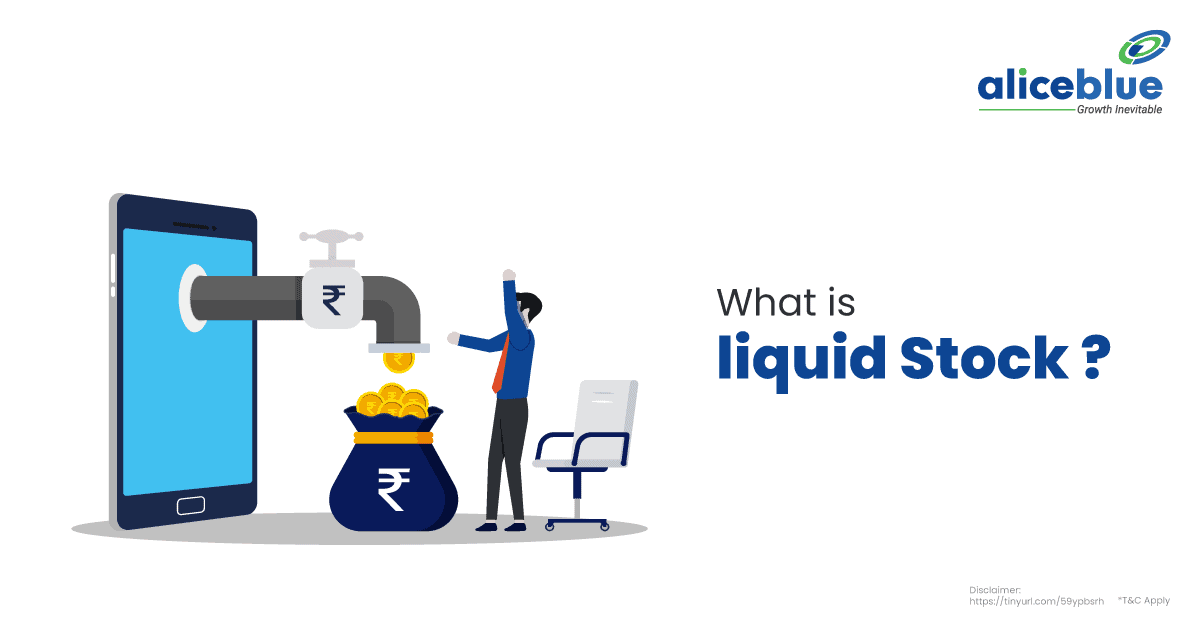The full form of FPO in share market is Follow-On Public Offer. It is a method by which listed companies raise additional equity capital in the stock market. This process allows companies to dilute their promoters’ holdings, reduce debt, or raise capital for future plans.
One real-life example of an FPO is the follow-on public offering that Tesla Inc. did. Tesla announced an FPO in February 2020 to raise additional funds by selling the general public roughly $2 billion worth of common stock. With the help of the FPO, Tesla got more money, which it used to do things like increase production and research and development.
Contents:
- What Is FPO In Stock Market?
- Types of FPO
- FPO Vs IPO
- What Is Difference Between OFS And FPO?
- How To Apply For An FPO?
- FPO Full Form – Quick Summary
- What Is FPO – FAQs
What Is FPO In Stock Market?
An FPO (Follow-On Public Offer) in the stock market is an issue of shares to the public by a company that is already listed on the stock exchange. This method allows the company to raise additional capital.
In 2008, the State Bank of India (SBI), India’s premier public sector bank, leveraged a follow-on public offering (FPO) as a strategic move to bolster its finances. SBI announced an FPO aiming to accumulate a significant amount of around INR 16,736 crore. This financial exercise was done with the primary objective of supplementing its Tier I Capital, thereby ensuring a comfortable capital adequacy ratio.
This action was also aimed at fortifying SBI’s general business operations, allowing it to extend its lending operations and enhance its presence in the financial sector. The announcement and subsequent implementation of the FPO had a significant impact on the bank’s share price. Initially, there was a slight dip in the share price as markets adjusted to the news of increased share supply.
Types of FPO
There are two types of FPOs: dilutive and non-dilutive.
1. Dilutive FPOs are issued when a company wishes to raise additional capital. This new issuance dilutes the EPS (Earnings Per Share) as the number of shares increases.
A relevant example is the Follow-On Public Offer (FPO) executed by PowerGrid Corporation of India Ltd in 2010. The company, one of the largest transmission utilities in the world, planned to raise capital to fund its growing capital expenditure. The FPO was well-received, with PowerGrid successfully raising around INR 7,600 crores. This large inflow of funds was used to implement various ongoing and planned projects, especially those related to expanding the national power grid.
2. Non-dilutive FPOs occur when the company’s existing shareholders, such as the promoters, sell off some of their holdings. In this case, the EPS is not diluted as there’s no new issuance of shares.
Another illustrative example occurred in 2020 with Yes Bank, one of India’s leading private-sector banks. To secure the bank’s financial position amid rising NPAs and capital needs, the promoters decided to sell part of their holdings through an FPO. They raised around INR 15,000 crores, considerably strengthening the bank’s capital base.
FPO Vs IPO
The main difference between an IPO and an FPO is that an IPO is the first time a company sells shares to the public, while an FPO is when a company that has already had an IPO sells more shares.
| Parameters | FPO (Follow-on Public Offering) | IPO (Initial Public Offering) |
| Purpose | 2dn time sale of shares by a publicly traded company | Company’s first sale of shares to the public |
| Timing | Occurs after the company’s IPO has already taken place | Occurs when a company goes public for the first time |
| Capital Raised | Raises additional capital to fund expansion, acquisitions, or other purposes | Typically raises a significant amount of capital for the company |
| Investor Demand | Investor demand may vary depending on company performance and market conditions | Generally generates high investor demand due to initial offering |
| Regulatory Process | Generally involves less regulatory scrutiny compared to the IPO process | Involves extensive regulatory requirements and scrutiny |
What Is Difference Between OFS And FPO?
The main difference between OFS and FPO is that in OFS, existing shareholders sell their shares, while in FPO, the company itself sells more shares to the public.
Here’s an comparison table with bases of difference between OFS (Offer for Sale) and FPO (Follow-on Public Offering):
| Basis of Difference | OFS (Offer for Sale) | FPO (Follow-on Public Offering) |
| Share Source | Existing shareholders sell their shares to the public | The company issues additional shares to the public |
| Capital Raised | Shareholders receive the proceeds from the sale | The company receives the proceeds from the issuance of new shares |
| Shareholder Control | Existing shareholders may reduce their stake or exit the company | Existing shareholders’ stake remains the same unless they participate in the FPO |
| Purpose | Shareholders seek liquidity or diversification of their investments | The company aims to raise capital for expansion, acquisitions, or other corporate purposes |
| Regulatory Process | Generally involves less regulatory scrutiny compared to an IPO or FPO | Involves regulatory requirements similar to an IPO, including disclosures and approvals |
| Pricing Mechanism | Shareholders determine the price at which they are willing to sell their shares | The company determines the price at which it offers the additional shares to the public |
| Shareholder Type | Typically involves existing institutional investors, promoters, or large shareholders | Open to both institutional and retail investors, with no restriction on shareholder type |
How To Apply For An FPO?
- Open a Demat and trading account: To invest in an FPO, you need a Demat and trading account. If you don’t have one, you can open an account with Alice Blue, which provides a seamless trading experience.
- Check the company’s FPO details: Look for the FPO announcement, check the company’s financials, and read the red herring prospectus for details about the issue.
- Apply for the FPO: You can apply for an FPO through your stock broker.
- Bid for shares: Usually, an FPO comes with a price band, and you can bid within this range.
- Allotment and Refund: The allotment process begins after the bidding process closes. The shares will be credited to your Demat account if you receive an allotment. Your bid amount will be refunded if you don’t receive any shares.
Quick Summary
- FPO stands for Follow-On Public Offer, a process by which already listed companies raise additional capital in the stock market.
- There are two types of FPOs – dilutive and non-dilutive. Dilutive FPOs issue new shares and dilute EPS (Earnings Per Share), while non-dilutive FPOs don’t issue new shares and involve existing shareholders selling off their holdings.
- Main difference between an IPO & FPO is in an FPO, a company that has already had an IPO sells additional shares, whereas an IPO is when a company sells shares for the first time to the public.
- Applying for an FPO involves a few steps, including opening a Demat and trading account, checking FPO details, applying, bidding, and finally, allotment or refund.
- The key difference between OFS and FPO is that an OFS involves promoters selling their shares directly to the public, while an FPO involves a listed company issuing more shares.
FAQs
1. What does FPO Mean?
FPO stands for Follow-On Public Offer. It’s a method through which already listed companies raise additional capital in the stock market by issuing more shares.
2. What Is An Example Of FPO In India?
In 2020, Yes Bank, one of the best private sector banks in India, was a good example. To protect the bank’s finances in the face of rising NPAs and the need for more capital, its founders decided to sell some of their shares through an FPO. They raised about INR 15,000 crores, which helped the bank’s capital base a lot.
3. What Is the Difference Between IPO And FPO?
The primary difference lies in their nature. An IPO, or Initial Public Offering, is the first sale of stock by a company to the public, while an FPO is a subsequent issuance of shares by an already publicly listed company.
4. What Is the Benefit Of FPO?
FPOs benefit the company by raising additional capital, diluting promoters’ holdings, or paying off debt. They benefit investors by offering an opportunity to invest in a company they believe in.
5. Is FPO Good For Shareholders?
It can be if the funds raised are used for the company’s growth or to pay off high-cost debt. However, an FPO can dilute earnings per share, which may not be favorable for existing shareholders.
6. What Happens To Share Price After FPO?
An FPO can lead to a temporary drop in the share price due to the increase in the number of shares. However, if the funds raised are used effectively, the share price may recover or even rise in the long run.
7. How Do I Buy FPO Shares?
Buying FPO shares involves opening a Demat account and a trading account with Alice Blue, checking the FPO details, applying for the FPO through net banking, and bidding for the shares. You can invest in FPO free of cost with Alice Blue.
8. Is An FPO Profitable?
An FPO can be profitable if the company uses the funds raised effectively to grow or reduce debt. However, it can lead to a dilution of earnings per share, affecting profitability for existing shareholders.
9. Can FPO Shares Be Sold?
FPO shares can be sold just like any other ones once credited to the investor’s Demat account.
We hope that you are clear about the topic. But there is more to learn and explore when it comes to the stock market, and hence we bring you the important topics and areas that you should know:
Click the link to access the web story now : FPO Full Form In Share Market







